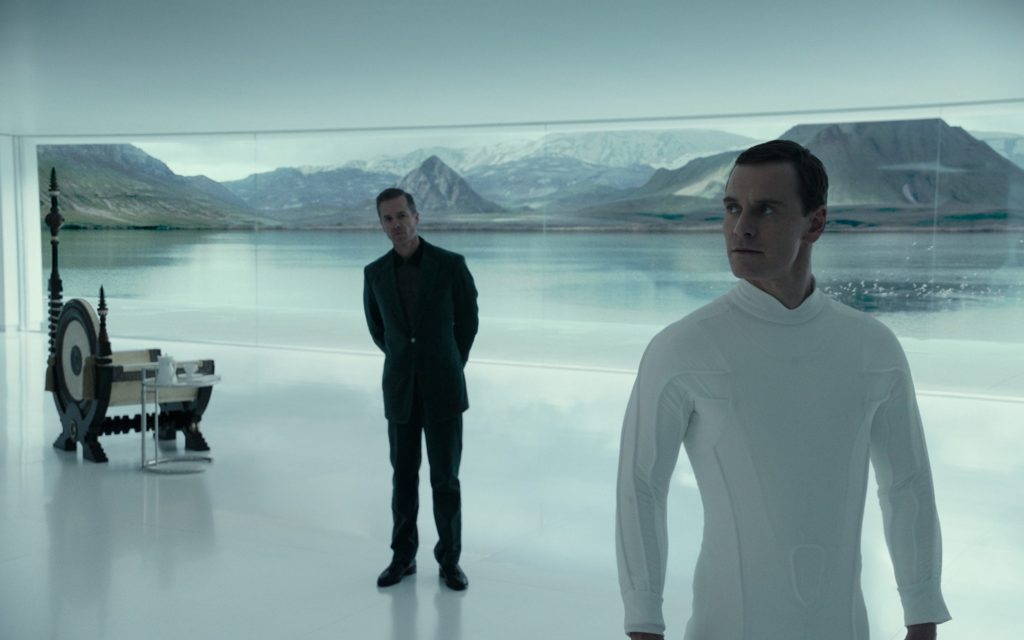
The best part of Ridley Scott’s latest offering, Alien: Covenant (2017), is when Michael Fassbender kisses Michael Fassbender. The film features Fassbender in dual roles as the androids David and Walter and, of course, they kiss. This is bound to be great fun for fans of the actor, but it pinpoints a troubling side to Scott’s cinema. If one considers that it is the film’s villain, David, who kisses his double Walter, one cannot escape the legacy of villainizing characters who do not conform to heteronormative sexual practice. The stand-out representative of this trend in Scott’s films is Commodus (Joaquin Phoenix) in 2000’s Gladiator.
Repetition is the theme of Alien: Covenant in more respects than just the one stated above. For it seems that the narrative of Alien: Covenant is born out of a fusion between James Cameron’s Aliens (1986) and Erle C. Kenton’s The Island Of Lost Souls (1932). Thus, Alien: Covenant is as predictable as 2012’s Prometheus was subversive. There is now, more than ever, a sense of formula to 20th Century Fox’s Alien franchise. Not only does Alien: Covenant rehash familiar narratives, it also recycles its characters. By casting Katherine Waterston as the protagonist Daniels in a position within the narrative not dissimilar to that of Ripley in the original films, Scott has diminished the subversive potential of a female protagonist within a science fiction film.
Ridley Scott’s strengths as a filmmaker are, however, very much present in Alien: Covenant. The attention to detail in the set design and the pervading sense of atmosphere render this mediocre film far more visceral than it has a right to be. This does not redeem the series of special effects and stunts that send us blundering through Alien: Covenant’s narrative though. A criticism that seems applicable to almost all of Scott’s work.
Interestingly, this pattern of repetition or doubling appears to have extended beyond the confines of Scott’s work on its own terms. Just as Ridley Scott began his career by emulating Stanley Kubrick in his under appreciated first feature The Duelists (1977), so has Denis Villeneuve been emulating Scott since 2013’s Prisoners. This aesthetic intersection only occurred to me when the latest trailer for Blade Runner 2049 played before Alien: Covenant. Villeneuve is quite literally replacing Scott as he helms the sequel to the acclaimed 1982 film into the world of the franchise. My impressions of Blade Runner 2049 are actually quite similar to those I had of Alien: Covenant upon first seeing the latter’s trailer; haven’t I already seen this? Within this complex of subtle codification it is entertaining to ponder if Ryan Gosling really is to a generation of viewers what Harrison Ford was before him.
This review first appeared in 2017.
